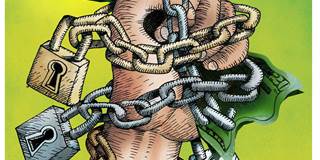America’s Saving Surprise
The household saving rate in the US has tripled in the past three years. If the saving rate continues to rise rapidly, it could push America’s fragile economy into another downturn, which would mean lower imports and potential problems for countries that depend for their employment on exporting to the US.
CAMBRIDGE – The household saving rate in the United States has tripled in the past three years. Why? And what does it mean for the US economy and the rest of the world?
The rapid rise in saving has reduced consumer spending, slowing the pace of GDP growth in 2009 and in early 2010. If the saving rate continues to rise rapidly, it could push America’s fragile economy into another downturn. That would mean lower imports, creating a potential problem for countries that depend for their employment on exporting to the US.
Higher household saving depresses consumption because it is the difference between households’ after-tax income and what they spend. The saving may be deposited in bank accounts or used to buy mutual funds or corporate stock. Saving may also take the form of individual contributions to retirement accounts or employer contributions to corporate saving plans. Paying down debt on credit cards or mortgages also counts as saving – but increases in the value of existing assets like stocks or real estate do not, even though they increase the value of household wealth.



CAMBRIDGE – The household saving rate in the United States has tripled in the past three years. Why? And what does it mean for the US economy and the rest of the world?
The rapid rise in saving has reduced consumer spending, slowing the pace of GDP growth in 2009 and in early 2010. If the saving rate continues to rise rapidly, it could push America’s fragile economy into another downturn. That would mean lower imports, creating a potential problem for countries that depend for their employment on exporting to the US.
Higher household saving depresses consumption because it is the difference between households’ after-tax income and what they spend. The saving may be deposited in bank accounts or used to buy mutual funds or corporate stock. Saving may also take the form of individual contributions to retirement accounts or employer contributions to corporate saving plans. Paying down debt on credit cards or mortgages also counts as saving – but increases in the value of existing assets like stocks or real estate do not, even though they increase the value of household wealth.